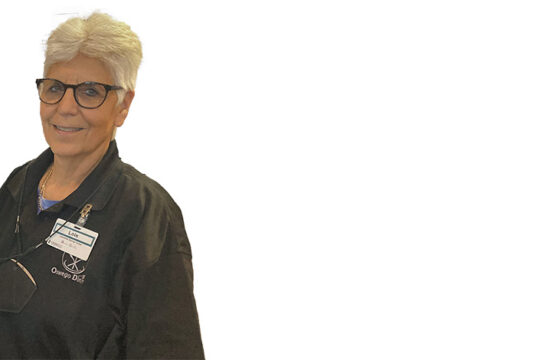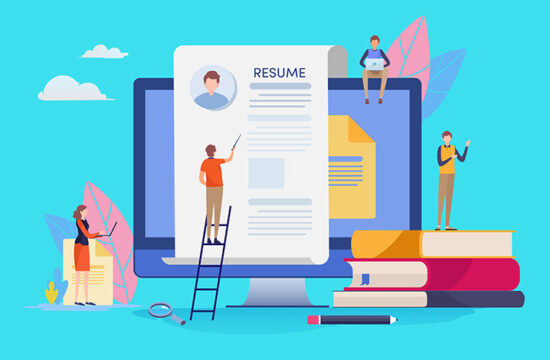From a former SUNY Oswego student who went through several of those interviews
By Melissa Stefanec
Job interview. When paired, these two words may be two the of most frightening words in the English language.
They can instill fear in the strongest of people.
They can make the sincerest people panic and act absurd.
Maybe that’s because so much of a person’s future hinges on the outcome of these two words.
Just getting to that interview can be an arduous process. First, your application has to make to the computer screen of a recruiter. Then, the recruiter has to like what they see enough to set up a phone screening. At the phone screening, you have to fight nerves to remain coherent and temper your enthusiasm just enough to score an actual interview.
Then, the scary part comes. You have to sit in a room full of strangers and convince them you have what it takes to improve the bottom line of their organization.
It’s grueling. It’s foreign. It’s what nightmares and panic attacks are made of. However, it doesn’t have to be this way. Here are some tips for interviewing as painlessly as possible.
Don’t say what you are supposed to say
It’s OK to rehearse a narrative for selling yourself, but don’t rehearse a script. Interviewers can spot a scripted answer in seconds. When someone asks you a question, answer it honestly. Don’t just say what you think you’re supposed to say. No one gives all the right answers. Doing so can actually make you seem dishonest.
Be authentic
You should practice prudence and discretion when on a job interview, but don’t be afraid to be yourself. If you put up a lot of facades in order to look like someone else, people sense that. When people bring the best version of themselves to an interview, people respect that, minor flaws and all.
Answer the question you were asked
When you are asked a question, do your best to answer that question right away. Don’t start with an anecdote or offer a lot of backstory. Answer the question first and digress later. Otherwise, you might forget to answer the question.
If you can’t answer a question, say so
If you’re asked a question you can’t answer, say you don’t know the answer. Don’t make up an answer. People will see through it and not like what they see on the other side.
Answer honestly, even if the answer isn’t ideal
You will be asked questions that you have less-than-ideal responses to; that’s OK. Maybe you will be asked if you know about a specific piece of software or a business concept that you have little to no knowledge on. You should answer honestly anyway. Follow it up with an example of a time you knew nothing about a subject but quickly mastered it. Interviewers will have respect for this.
Don’t be afraid to overdress
When faced with the question of overdressing or underdressing, overdress every time. The most informal of places won’t mind overdressing. Everyone will fault you for underdressing. The same advice goes for professional versus casual dress. Err on the professional side.
Do your homework
Go into your interview knowing something about the organization and position you’re interviewing for. You don’t have to know everything, but you should be informed enough to answer and ask good questions.
Stay positive
No matter what you’re feeling inside, try to remain positive throughout your interview. Employers want to know you can handle adversity, and job interviews are a special kind of adversity.
Look people in the eye
At some points during the interview, try to make eye contact with the person interviewing you. Not only will it demonstrate your own confidence and sincerity, it will also help you feel out the people interviewing you.
Don’t be afraid to say “I have a lot to learn”
Whether you’re fresh out of college or 20 years into a career, you will always have a lot to learn. Don’t be afraid to admit that. Employers want to hire people who are coachable and able to accept constructive feedback. Admitting you have a lot to learn and are eager to start learning is the best way to get in the door.
Always ask questions
When it comes time to ask questions to your interviewers, ask something. This is one place you can come prepared with a scripted question. Google “best questions to ask during an interview.” Come loaded with interview questions. Asking the right questions will put you at a strong advantage.
Don’t be afraid to sell yourself
As new as you are to the job market, remind yourself of what you have to offer a potential employer. You should highlight whatever qualities your professors, peers and mentors admired about you in college. When you share your strengths in a grounded way, people will listen.
Remember you are interviewing the employer
You will likely interview for positions that don’t suit you. You will likely interview at organizations that aren’t a good match for you. When you are interviewing, ask the right questions and listen to the information offered to you. Not every interview will result in a perfect career match; that’s to be expected.
If you follow these tips, you’ll be ahead of peers (and some people twice your age). Anxiety and apprehension are inherent when you interview for a job, but a little confidence and a lot of preparation are your best defenses. These two tools can change you from candidate to employee and put an end to your dread of the job interview.












